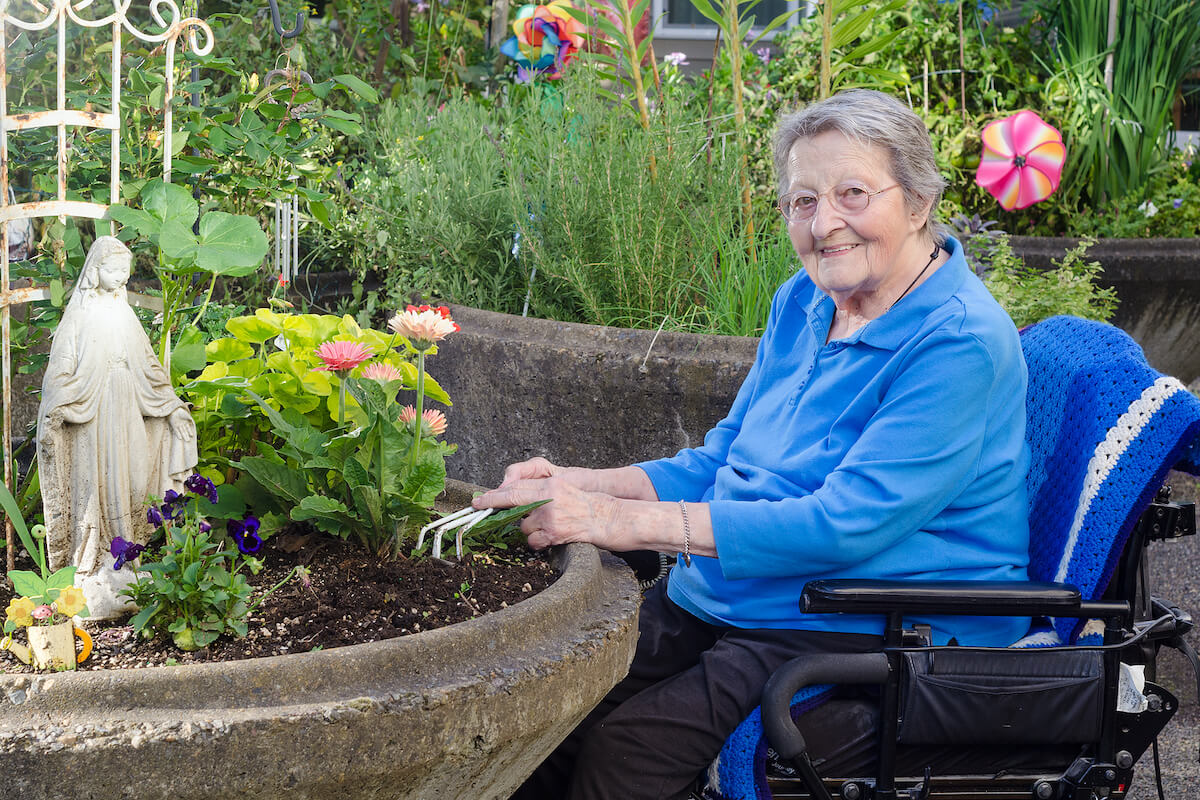April 5, 2019

Part of what makes gardening so rewarding is the fulfilling experience of helping something thrive. Unfortunately, as we age, mobility problems can make this enjoyable pastime uncomfortable or even impossible. But it doesn’t need to be this way!
Over the last few years, there has been an increase in consumer demand for accessible gardening solutions. What is accessible gardening? To put it simply, accessible gardening is the concept of making it easier for people with limited mobility to enjoy the hobby.
In this post, we’ll explore three simple tips that could help you and your friends continue gardening well into the future. Let’s roll up our sleeves and explore.
Gardening can be a hobby that you can enjoy for your entire life, but as you get older, it’s completely natural for things to get more physically taxing. That’s where accessible gardening tools come into play.
As you get older, it’s natural for it to be more difficult to stand or bend over for long periods of time. This is why wheelchair accessible planters are so great. These planters sit at about waist height, making it easy for anyone in a wheelchair to have full access over the entire planter. Make sure that anyone in a wheelchair can completely reach across the planter with ease. That means these planters are not that deep horizontally.
If you’re interested in wheelchair accessible planters, it’s important for you to test out how clear of a pathway you’ll need. The path along the planters should be open enough to accommodate a wheelchair with plenty of space to allow people to turn around. It’s worth mentioning that more high maintenance plants might make it harder for you to garden in your wheelchair. Here is a list of easy growing plants that would perfectly compliment your wheelchair accessible planters.
Raised garden beds are built up instead of down. They can be created easily by using boxes to enclose and contain garden soil. If you’ve been gardening for a long time, you know how much back and knee strain the hobby can give you over time. Raised garden beds that are at least 12” tall can resolve much of the pain that is associated with normal gardening.
There’s an added benefit of raised garden beds. Raised garden beds tend to be more pleasing to the eye and also do a pretty good job keeping out unwanted pests. They can also become a social gathering space for your neighbors, friends and family.
Community gardening is like a shared art canvas where you can gather and express your creativity. Hopefully, these accessible gardening tips will help you remove the barriers of this fun, rewarding hobby.
Franciscan Ministries offers a wide range of community living options for seniors. Our mission is to ensure every resident has access to the services and amenities they need to live healthy, active lives. If you or your loved one is considering moving to a senior living community, contact us today to learn more about our community options, as well as our wide range of programs all designed to help seniors live life to the fullest.